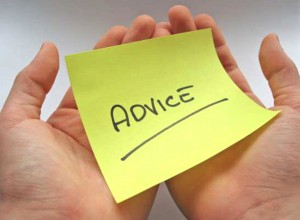Everyone has times in their life when they need a bit of a helping hand and some good advice.
Perhaps it’s some advice on which direction to head, or maybe you have two equally enticing options before you and you don’t know which path to take.
It’s in these moments that we reach out to those around us for advice.
This is not a bad idea as other people are often able to see patterns or potential that’s invisible to us.
And good decisions, made over and over again, are the foundation of success.
But not everyone gives great advice
Some people think they’re helping out, but really their advice ends up sending you on a wild goose chase.
We’ve all been there!
Which is why I am always very cautious of who I go to when I want to sound out ideas.
I have been in this industry for many decades, and am lucky to have built a trusted circle of people around me with great suggestions.
But I’ve had plenty of bad advice come my way in the past that, had I listened to, would have set me back years.
Luckily, there are some obvious signs, if you know what to look for, that the advice you’re being given isn’t in your best interests.
It tends to stand out like a sore thumb once you know the signs.
Here’s some of the main ways you can tell good advice from bad.
It is thoughtful advice
Ever get the sense that someone is shooting from the hip?
That they’re saying the first thing that comes into their head and aren’t really taking what you say seriously?
That’s the very definition of bad advice.
If someone, on the other hand, is giving measured and thoughtful responses, then pay attention because it’s coming from a much more reliable place.
Thoughtful people are great at giving advice because they weigh up all options carefully.
The advice makes sense
Some people are very charming and can sell a solution to you even if that solution makes no sense at all. When someone is advising you, listen very carefully to what they’re saying.
Does it add up?
Does it sound too good to be true? If so, chances are it is.
If, however, you find yourself nodding along in agreement and what they’re saying chimes with your own research, then you’re onto a winner.
 The Advice is not about them
The Advice is not about them
Listening to others and giving honest advice is a skill.
Very few people have this ability to step back, remove themself from the picture and consider what is genuinely best for the other person.
Why is this the case?
Well, without wanting to sound too much like Oprah here, we all come with baggage.
We project our own thoughts and feelings onto a situation and advise people based on what we would do, rather than what they should do.
If someone gives you advice that reflects solely what they would do, and doesn’t take into consideration your unique situation, then tread carefully.
On the other hand, if they’re able to fully empathise with your dilemma and listen carefully to your pros and cons list, then chances are they’re going to give you good advice.
The advice is from an expert
I’ve saved the most important point for last.
Always, always, check the credentials of the person you’re taking advice from.
Don’t look at how they dress, what car they drive or what they tell you about themselves.
Look at where they’ve been and where they’ve ended up in life.
You see, we’re all a product of the millions of choices we’ve made throughout our life and career, and if the person you’re seeking advice from is at the top of their field, or achieved what they’ve wanted to achieve, then it’s most likely they’ve made some great choices along the way.
It’s getting harder and harder to find the true experts these days in all the noise on social media, so it pays to do your homework and check the experience of people offering advice.
I don’t say all of this to turn you off advice.
There’s some great advice out there online and in the media (and on this Property Update blog, of course).
It can be found, I’m sure, in your circle of friends and colleagues.
But it’s important to realise that you can like someone who doesn’t give good advice and vice versa.
As I said before, good advice is a combination of the right personality traits and experience, and being nice or likeable has nothing to do with it.
So seek advice. It’s a smart thing to do.
But just make sure you vet the advice before you take it on board.
And if you’re still not sure?
Ask for a third opinion.
There’s no such thing as too much input in the decision-making process, but there is such a thing as terrible advice.



 The Advice is not about them
The Advice is not about them













